Blurbing For The Weekend 5/17/24
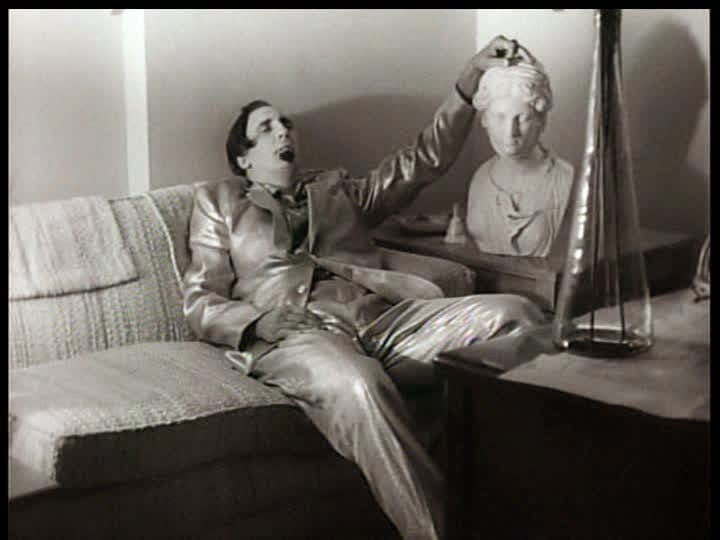
1962's The World’s Greatest Sinner is the only silly, slipshod, black & white grade-Z movie I’ve ever seen that I simply cannot imagine on Mystery Science Theater 3000. The film stars Timothy Carey, an “eccentric” character actor you might remember as one of soldiers up for execution in Paths Of Glory (a film he was fired from after faking his own kidnapping!), or as the Angel Of Death in D.C. Cab. He also appears in two ‘70s John Cassavettes movies and played “South Dakota Slim” in two ‘60s Frankie & Annette films. He also wrote and directed Sinner, hiring a pre-fame Frank Zappa to compose the score. I first caught it on TCM Underground some years back, recalling a rave in Marshall Crenshaw’s Hollywood Rock book. I’m almost as grateful to Crenshaw for this as I am for “Cynical Girl.”
The plot sounds like camp call-out catnip: insurance company manager Clarence Hilliard, in a sudden fit of ennui, decides to become a god, rock star and American president (in that order). Sinner had a healthy run on the LA midnight movie circuit, gaining fans as notable as Martin Scorsese. But most movies of the type feature long gaps between memorable lines and sequences, like shots of cars parking, where one can riff on the story so far. Sinner is such an avalanche of perverse chaos that you don’t get a chance to acknowledge The Weird Thing before the film has thrown another square in your face. The layers of oddity would require one to deftly switch lanes from lol-ing at a confusing jump-cut, to wondering why “God” Hilliard’s wacky neighbor Alonzo is so encouraging of his psychosis, to wondering if Carey knew this was psychotic, to suggesting who Hilliard looks like with his glued-on goatee. As we watch Carey make out with teenagers and grandmothers alike after frantic rockabilly sets, entourage donning armbands and fans screaming for their new messiah seemingly days after he decided to become one, The Devil cackling in voiceover, “whut”s and “WHY”s accrue to the point that those familiar silhouettes of puppets would sitting in hushed, rattled awe.
The "climax," where Hilliard gets his heavenly comeuppance, is sadly so protracted Tom Servo could croon the entirety of “Whiter Shade Of Pale” without missing anything. I don’t know if Carey was hustling funding from a church (like the Plan 9 sequence in Ed Wood), or genuinely trying to atone for the satanic excitement which precedes it, but this drag of a denouement may be why the movie isn't better known. Nonetheless, The World’s Greatest Sinner remains a remarkable, uniquely frantic film. It’s a delusion of grandeur about delusions of grandeur, almost as maniacally detached from sense & logic as it accuses its lead of being. It’s on The Criterion Channel right now, and without question a POPCORN CLASSIC.
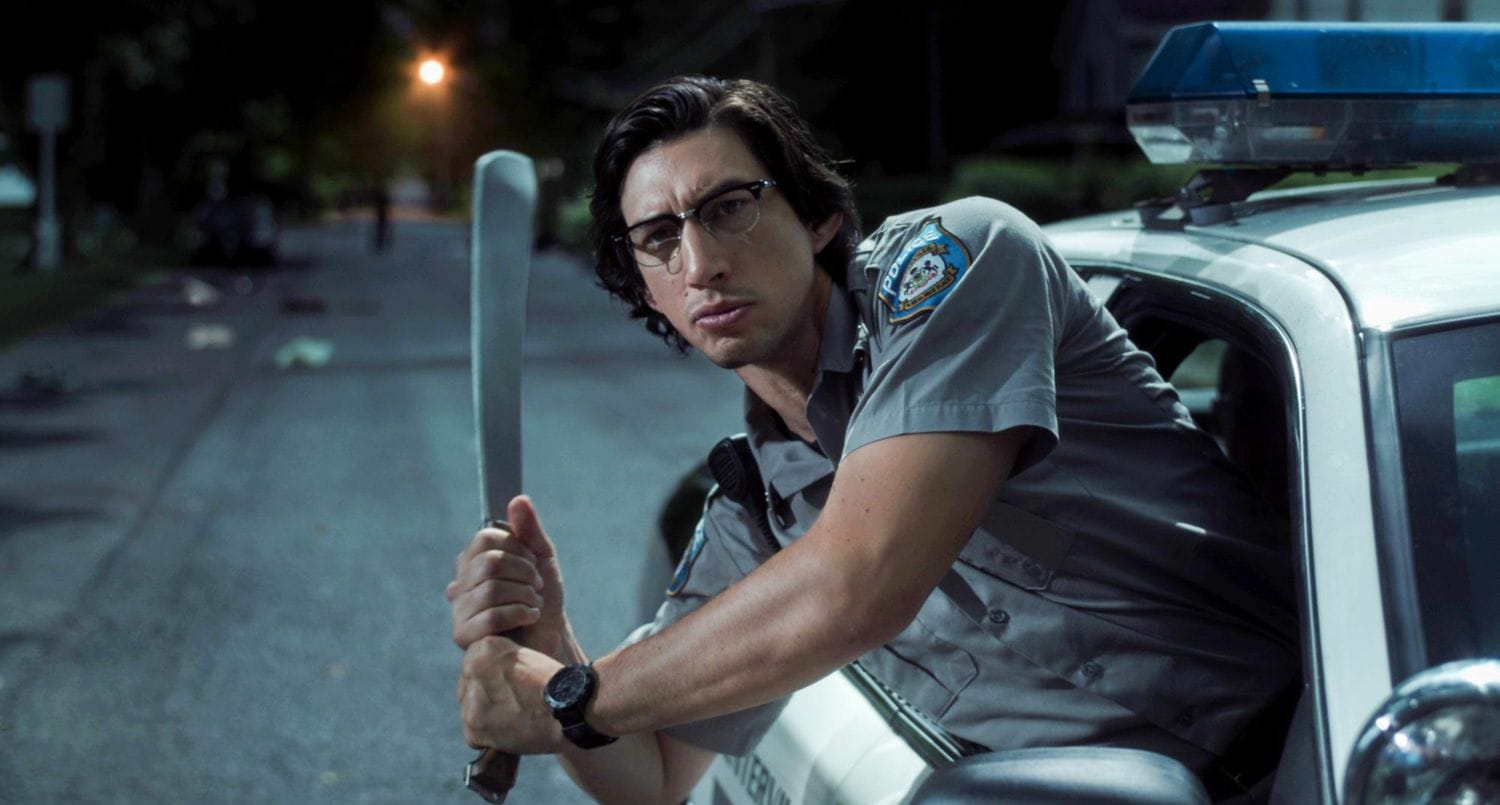
While Criterion subscribers probably hold Timothy Carey and Jim Jarmusch in similar regard, The World’s Greatest Sinner is a naive but inspired passion project, while The Dead Don’t Die - Jarmusch’s latest - feels like a cynical examination of whether filmmaking is worth one’s passion. Die concerns a rural town with quirky, deadpan locals, who very, very gradually realize they’re going to be eaten alive by zombies. The cops are played by Bill Murray, Adam Driver and Chloe Sevigny. Those they strive to protect include Steve Buscemi, Danny Glover and Larry Fessenden. Tom Waits psuedo-narrates as a woodland hermit, and Tilda Swinton plays a Scottish undertaker/samurai. Everyone is charming and cute in a humble, matter-of-fact way (even Swinton, who may well act like this at home), though little feels particularly memorable or inspired. The only sequence I’d put on anybody’s career highlight reel is Murray blasting an undead Carol Kane with a shotgun as she repeatedly requests chardonnay. Jarmusch has long grumbled about the increased difficulty of acquiring funding for his films, and I wouldn’t be surprised if this “little movie” interrupted by a cruel, violent contagion that turns interesting people into mindless consumers is a metaphor for The State Of Cinema, if not Society. But neither the movie it would have been without the zombie invasion, nor the movie it becomes when they arrive, seems to be more than another gig to the Saint Laurent model who made it. There are far worse things in movieland than watching the RZA play a philosophical UPS driver, and I’m not mad I’ve seen Iggy Pop, bare-chested in a vest, eating from another person's ribcage. But it’s hard to feel affected by an artist’s plight when they’re happy to spend millions on an all-star arthouse lark. I’m not convinced Jarmusch is mourning the ability to make art, so much as the ability to do what he wants, whenever he feels like it, in a state of considerable comfort & appreciation. At least he’s still got one hell of a rolodex. FIVE BAGS OF POPCORN.
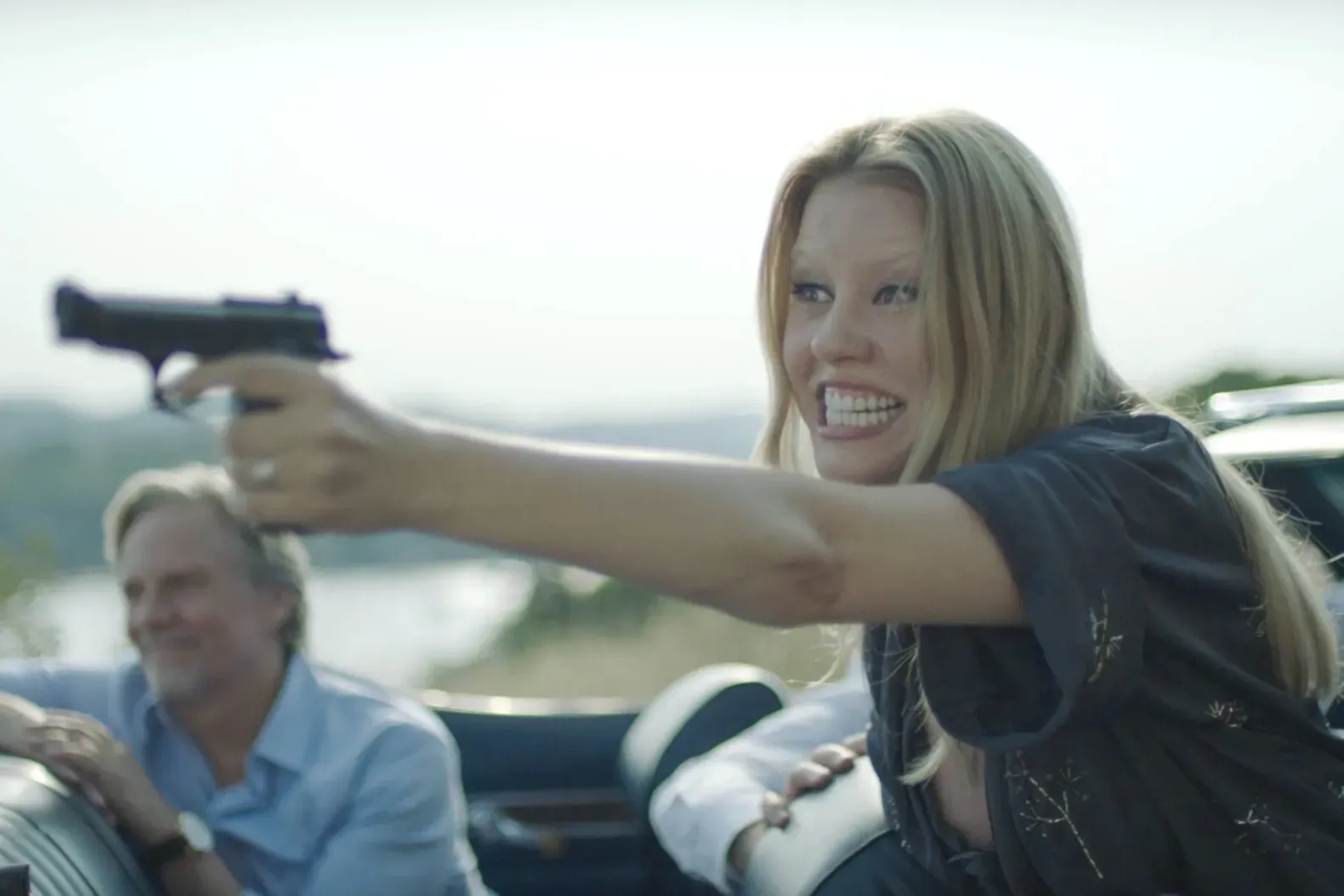
Brandon Cronenberg, son of Saint Laurent model David, isn’t having a hard time making horror films or making art with them. Infinity Pool concerns one of those countries with a brutal, oppressive political regime and a rising reputation as an elite travel destination. Somehow, this (fictional) island has figured out how to clone humans. So if you get criminally out of pocket - but can afford the cost - they’ll execute your clone instead of you. It’s basically a Twilight Zone episode crossed with an Antonioni film, the sci-fi conceit (and the local psychedelic “herbs”) allowing for Grand Guignol head-trips where the ennui-laden rich find surreal, ghastly ways to lose touch with their humanity. Alexander Skarsgaard is perfect as the handsome rascal who may just be a self-pitying schmuck, and eyebrow art queen Mia Goth once again chews the scenery like a goddamn Cookie Monster. I enjoyed it a little more than Cronenberg’s previous film, Possessor, which also concerned the fragility of reality, but lacked the metaphorical punch regarding class, trying to make up the difference with buckets of goop. FIVE BAGS OF POPCORN.
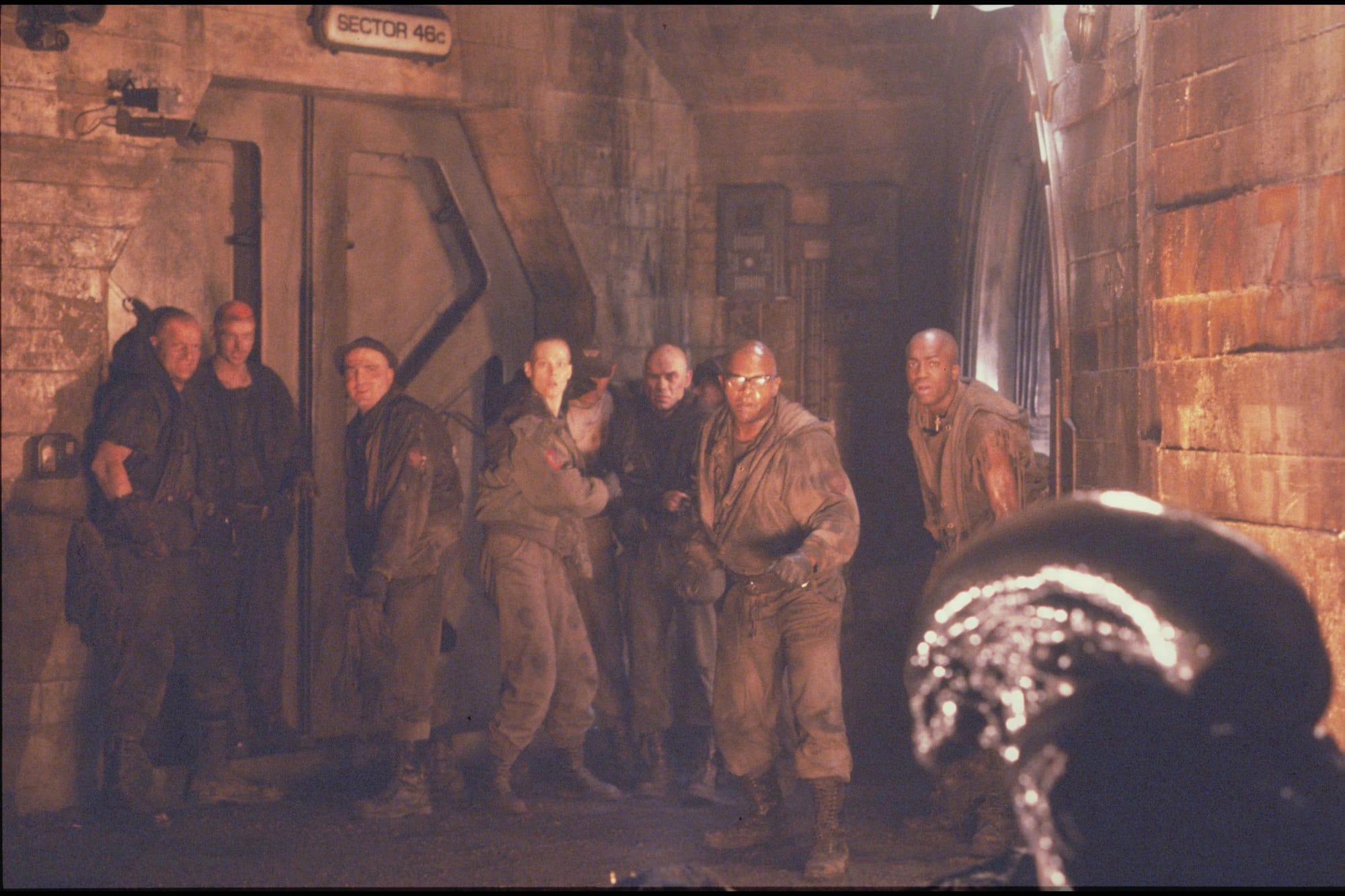
Though I still haven’t finished that rewatch of Aliens, I went ahead and checked out Alien 3. Now this is a perfect film for MST3k! Plenty of dead time to make bald joke after bald joke, questioning the logic of setting the sequel to Aliens (Aliens!) on a prison planet where the men have destroyed all the guns and become post-apocalyptic tunnel monks. For all my disappointment about Jim Cameron replacing the eerie silence and protocol struggles of Alien with hoo-rah military action, I got why Hollywood (and audiences!) would celebrate the result. Though Alien 3’s wikipedia page partly explains how the script wound up such a baroque yet underbaked casserole, time has only made it more boggling that an action franchise would make such a big, silly swing without a single person involved wanting to defend the vision afterwards. The Exorcist II? “John Boorman, you crazy for this one!” The Exorcist III? “William Peter Blatty, you crazy for this one!” Alien 3? “ok, who’s crazy for this one?” *crickets*. You have to thoroughly bring yourself back to 1992, when names like Branagh and Burton and Lynch held considerable clout, to imagine how so many gifted screenwriters and second-guessing producers, director David Fincher then but a powerless, MTV-raised foundling left to sweat lighting rather than logic, could create an Aliens sequel that comes off like Terry Gilliam’s Henry V. THREE BAGS OF POPCORN.
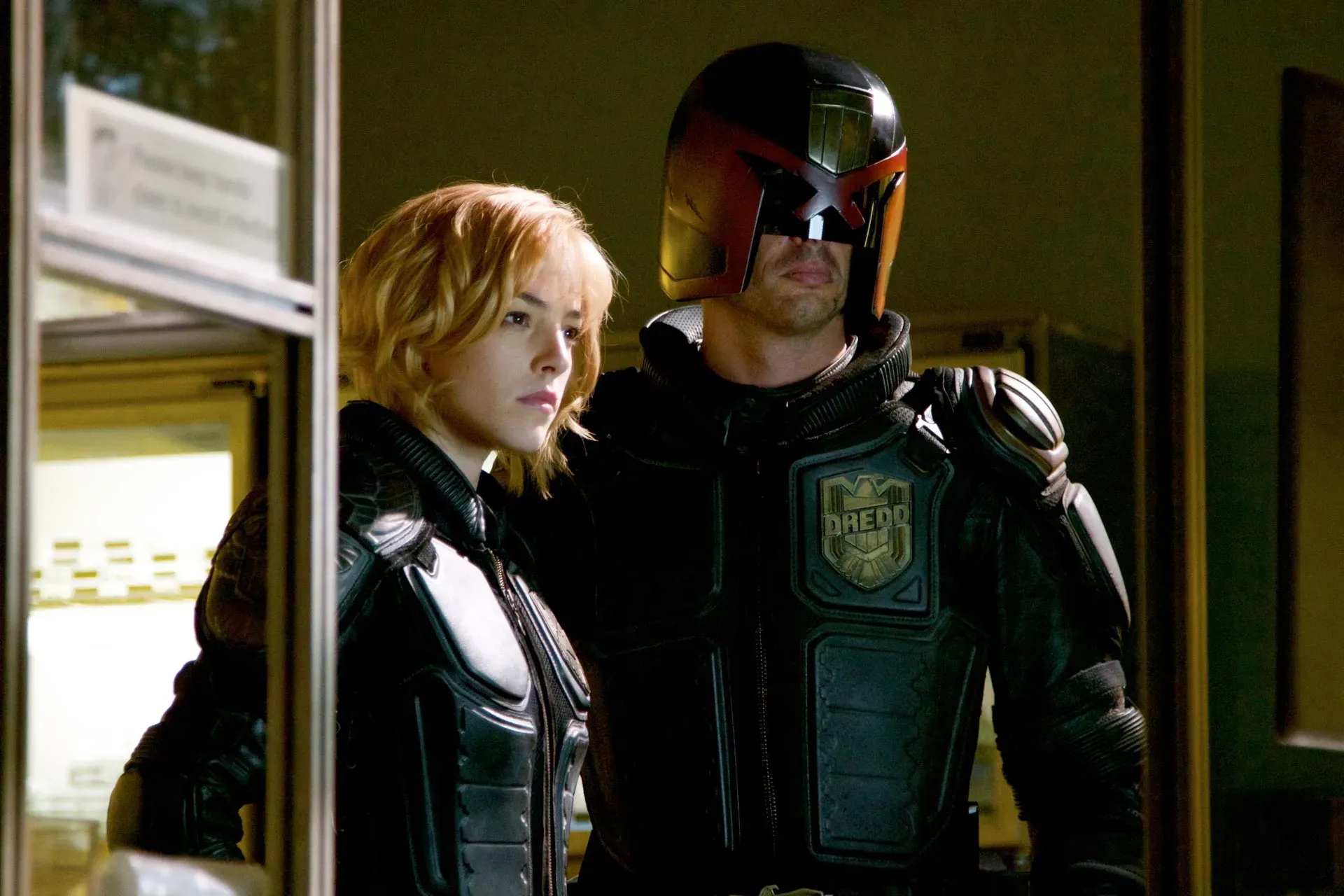
More POPCORN CLASSICS enjoyed recently:
Dread. This was my first time watching this brutal marvel of dystopian gunfire after familiarizing myself with star Karl Urban, and I'm even more impressed now by the acting feat achieved with only an unrecognizable accent and the bottom half of his face. Turns out Domnhall Gleeson is also in this early Alex Garland effort (uncredited as director, but supposedly took over by the end), almost as unrecognizable as a pale, terrorized techie. Lena Headley's Ma-Ma is an all-time cinematic crime lord. As absurd as the logic for letting Olivia Thirlby go without a helmet remains, I'll certainly allow it. The kind of movie where the star's mutter of "yeah" is even better than the kaboom that inspires it.
Ronin. A Robert DeNiro heist movie so good you may be tempted to check out the action crap he's churned out in the decades since, hoping to find even a sliver of the calm confidence he displays here. Natascha McElhone plays the unreadable go-between DeNiro's mercenary yearns to protect, Jean Reno plays the deeply charmed gunman who yearns to protect DeNiro. Sean Bean, Stellan Skarsgaard and Jonathan Pryce are among the underworld worms making life hard for the other three. John Frankenheimer and David Mamet (tightening JD Zeik's script under a pen-name) are a perfect team, the director subtly juicing the lean set-ups with his trademark taste for chaos. Most action directors either abjure acknowledging innocent bystanders, artlessly treat them like chaff, or promise they're okay when shit goes down. Frankenheimer was a master of ugly affirmations of the stakes, extra and star equally human, and equally likely to take a bullet.
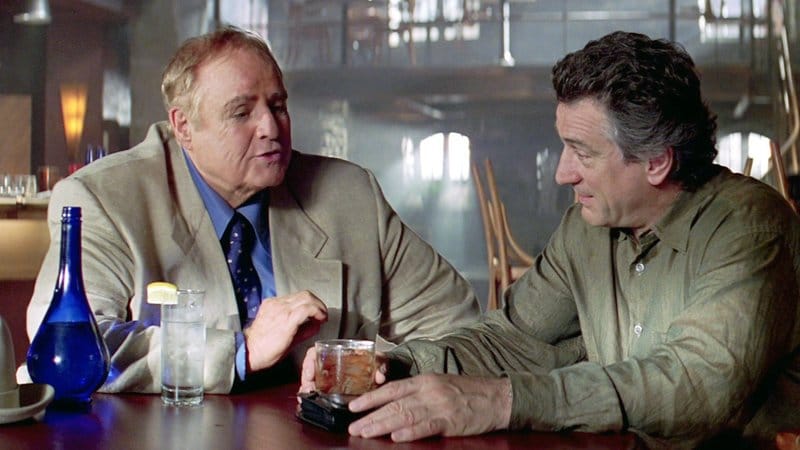
The Score. Another "Robert DeNiro as career criminal" caper, nowhere as good as Ronin but slightly less absurd than Heat. It would be a lot less absurd than Heat, if Marlon Brando wasn't blubbering it up as DeNiro's handler. Brando had long decided to fuck up any role or movie not worth his time, as a matter of method actor principle. While he was right to recognize this glorified cameo as a joke, neither director Frank Oz (who Brando called "Miss Piggy") nor DeNiro was going to let him go full Missouri Breaks in his sabotage, nor fire him. So we're left with this hapless, sweaty Jabba in khaki muttering vaguely necessary exposition while DeNiro (as a Montreal jazz club owner who swears he's done cracking safes) and Edward Norton (as a cocky con man who'd act his way into the safe if he could) try to provide the Great Thespians In A Fun Thriller showdown we came for. The pair fit together nicely; DeNiro's cynicism in movies always feels enjoyably earned, but fallibly human, and Norton's gifts sometimes justify his smugness. Angela Bassett has nothing to do but romantically reward DeNiro for not checking out, but she does it well.
My movie rating scale is explained here. All thoughts, thanks and thattaboys can go to Anthonyisright at Gmail dot com.